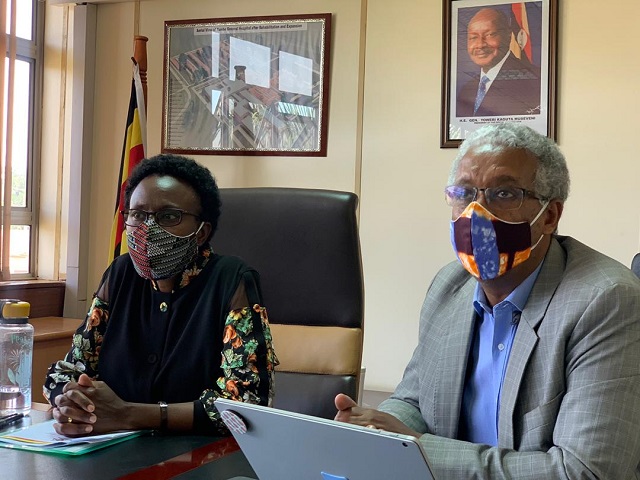Uganda’s Ministry of Health has launched a new entity, the Malaria Free Uganda Fund to boost the fight against malaria infections and death.
The Health Minister Dr Jane Ruth Aceng told journalists in Kampala at the launch that the idea of having this new board was reached after realizing that different entities have been conducting the same malaria control related work. She said that the ministry resolved that mainstreaming responsibility will remove financial and operational bottlenecks that deter them from achieving set targets for elimination of the disease.
The fund with a board of 11 members is chaired by Kenneth Wycliffe Mugisha of the Rotarian Malaria Partners-Uganda. Other members of the board are Patrick Bitature, the chairman of Simba Group, Lillian Ajarova, the CEO of Uganda Tourism Board, Sylvia Arinaitwe, the Deputy Managing Director of National Water & Sewerage Corporation, Juliet Kyokunda, the CEO of Uganda Biodiversity Fund and Bildard Buguma, the managing director of Joint Medical Stores among others.
According to Aceng, the board members have been carefully chosen from both within government and the private sector to offer support to the national malaria control division.
Aceng says before the new partnership kicks off, they have reviewed their interventions to establish what specific areas need improvement and have now given them key responsibilities that include mobilizing resources to close the budget gap and undertaking advocacy such that malaria prevention and control becomes a priority across all sectors and providing technical assistance to the team at the ministry.
However, the new fund comes in at the time of resurgence of malaria infections in the country which has threatened the earlier made gains. Before 2018, reported malaria cases had declined nearly by 45 percent from about 16,000,000 in 2013 to 6,500,000 in 2018, with parasite prevalence in children below 5-years reduced from 42 percent in 2009 to 19 percent in 2014 and 9.1 percent in 2018.
According to the World Health Organisation, Uganda records the third-highest number of malaria infections globally accounting for 5 percent of all infections. With this grim picture, Aceng told the board members that the country will not achieve the much needed economic development unless something is done to reverse it.
“As long as malaria remains a serious public health problem in Uganda where it is responsible for 30-50 percent of outpatient visits, 15-20 percent of hospital admissions and up to 20 percent of inpatient deaths and as long as malaria is seen as a routine part of health rather than the crisis it is, we shall continue to see stagnant economic growth and social development in our country”, Aceng said.
